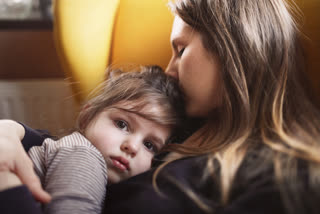Scientists have found that some people, notably children, have antibodies reactive to SARS-CoV-2 in their blood, despite not ever having being infected with the virus.
These antibodies are likely the result of exposure to other coronaviruses, which cause the common cold and which have structural similarities with SARS-CoV-2, the virus responsible for COVID-19, said the study published in the journal Science.
The researchers made this discovery while developing highly sensitive antibody tests for COVID-19. To see how well their assay tests were performing, they compared the blood of patients with COVID-19 to patients who had not had the disease.
Surprisingly, they found that some people who had not been exposed to SARS-CoV-2 had antibodies in their blood which would recognise the virus. To confirm their findings, they analysed over 300 blood samples collected before the pandemic, between 2011 and 2018.
Nearly all samples had antibodies that reacted with common cold coronaviruses, which was expected given how everyone has been exposed to these viruses at some point in their lives.
Kids Found To Have Antibodies That Could Protect Against COVID
Children are found to have antibodies in their blood which cause the common cold and have structural similarities with SARS-CoV-2, the virus responsible for COVID-19. These antibodies result from how everyone has been exposed to the COVID virus at some point in their lives, says a study.

However, a small fraction of adult donors, about 1 in 20, also had antibodies that cross-reacted with SARS-CoV-2, and this was not dependent on recent infection with a common cold coronavirus. Notably, such cross-reactive antibodies were found much more frequently in blood samples taken from children aged 6 to 16.
"Our results show that children are much more likely to have these cross-reactive antibodies than adults. More research is needed to understand why this is, but it could be down to children being more regularly exposed to other coronaviruses," said lead author of the study Kevin Ng from Francis Crick Institute in England.
"These higher levels we observed in children could also help explain why they are less likely to become severely ill with COVID-19. There is no evidence yet, however, that these antibodies prevent SARS-CoV-2 infection or spread."
In the lab, the researchers tested the antibodies they found in blood from uninfected people to confirm they are able to neutralise SARS-CoV-2. They found the cross-reactive antibodies target the S2 subunit of the spike protein on the surface of the virus.
A large study is now underway, in partnership with researchers at Imperial College London and University College London, to uncover the role that different antibodies and other immune defences play in protection against COVID-19 and how severely ill people become.